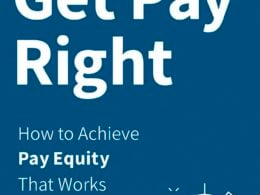Brian Wong graduated from college by age 18, raised $24 million in venture capital by 25 and swears by all of the secrets packed into his book, “The Cheat Code.” In it, he offers up advice for shortcuts to success, how to get ahead of your competition and more.
The following excerpt is adapted from “The Cheat Code: Going off Script to Get More, Go Faster and Shortcut Your Way to Success” Copyright © 2016 by Brian Wong. Published by Crown Business, an imprint of Penguin Random House LLC.
“The Cheat Code” is available for purchase now wherever fine books are sold, and at StartupNation.com.
There I was at South by Southwest, the Oscars of emerging technology and startups, and my voice sounded like a cross between a talking rooster’s and a motivational speaker’s, because in the last fifty hours I’d met about 500 new people out of the 51,000 who were there—and they were some of the most interesting people on earth. They were the future of business, and that made them part of my future. SXSW is the quintessential networking event for entrepreneurs who want to lead change instead of follow it.
Think of SXSW as Davos for Nerds.
Imagine all the primary players from thousands of the hot-test startups crammed together in one big room at an insane, high-octane event. This is not the time to spare your throat. It’s the time for ABP: Always Be Pitching. But the key to making the most out of an opportunity like SXSW is not to be pitching your business; it’s to be pitching your own personal brand.
People working for a company tend to think of that company as their brand. That’s why it’s good to work for a big brand, like Google. You introduce yourself this way: “Hi, I’m John Smith, of Google.” People are like: “Mr. Google, it’s such a thrill to meet you. I’ve heard so much about you!”
Your company is rarely your primary brand, though. Your main brand is you. Don’t forget that, and don’t be ashamed of it. Everybody loves being on a team—especially an all-star one like Google—but think about it this way: People change teams (and jobs) all the time, and you’ll still be you long after you’ve left Google.
Related: 10 Ways to Create a Successful Business Pitch
One variation, therefore, of ABP is Always Be Pitching Yourself.
If you look around, you’ll see that the smart people at high-opportunity networking events like these are pitching their own persona—their selfhood. They’re making connections, not deals. They know that deals are for later, if ever.
There’s scattered talk about who’s doing what, which companies are being funded for how much, and so on. But the real conversations are always about the same two topics: you and the person you’re talking to.
In other words, your goal should be to get people to invest in you, not your project—because smart people never invest their time, money, or reputation in just a project. It’s always personal.
Plus, when you open yourself up and let people see who you are—as a person, not just the extension or representation of the company you work for—you’re more open to the serendipity of meeting the right people: That’s how I met Pete Cashmore, CEO of Mashable, a few years ago at SXSW. I went to the Mashable party and a mutual friend just said, “Pete, meet Brian, and Brian, this is Pete.” Very casual. No expectations. Neither of us knew much about the other, but we found out we were both starting new companies, and that’s something that’s easy to bond over. Back then neither Pete nor I thought we’d soon be on Forbes’s “30 Under 30,” a list of the most prominent young people in business, or that Pete would be one of Time’s “100 Most Influential People of 2012.”
Our meeting wasn’t about where we were going or how one of us might be able to help the other out in the future. It was about two guys with similar interests getting to know each other a little.
Think how different a relationship like that is from one that starts with somebody giving you an elevator pitch along the lines of, “I’ve got an amazing business idea: Uber for pizza! Boom!” That relationship is just about that one idea, and when the idea dies, the relationship goes with it.
Also, the reality is, nobody gives a (sic) about what you’re doing, or your funding, or the last deal you closed. Why should they? You’re just one of a million startups at a place like SXSW.
That is, nobody gives a (sic) about you until you help them understand why they should: because of who you are as a human being. In other words, if you want to make a true connection, you need to cut through the superficial clutter of deals, titles and achievements (news flash: people will see right through them) and show your true self.
So you don’t go to a place like SXSW—or any gathering of important people for whatever industry or line of work you’re in—full of hubris. You go in grateful: to be at this place, to be learning and growing, and to be making extraordinary friends.
That creates the serendipity of right person, right place, right time, and those are the connections that eventually bring opportunities that lead to your success.
But the key word here is “eventually.” I rarely do business right away with the people I meet. Instead, I wait for the right time and the right opportunity—and in the meantime, I continue to cultivate the relationship, keep it strong. I still haven’t done any business with Pete Cashmore—but maybe someday I will.
The point is, over time, authentic relationships will yield 50 value for your business, in addition to the value they yield for your life as friendships. It might start when you see the other person again at a conference, at a party, or at some other industry event. Then you’ll meet as old friends, who know each other for the right reason—that you like and respect each other—rather than the wrong reason, which is that you think you can make money off each other.
Related: Sign up to receive the StartupNation newsletter!
The truly golden relationships start when your goal is to not force anything but to share some of yourself with people, learn from them. I’ve found that if you ask people for advice, they’ll give you money, and that if you ask them for money, they’ll give you advice. But the higher you climb in business, the less your relationships revolve around money and the more they revolve around being the person other people want to spend time with.
It’s really fun to be the guy people want to be around. I experienced this a couple of years ago at SXSW, when Kiip threw an incredible party cosponsored by a client, Decentralized Dance Party. DDP coordinates sensational events all around the world—the kind of parties that stick in your mind forever and are well worth the expense. After all, nothing amortizes better than a good memory.
Our DDP party in Austin consisted of taking an FM radio tuner off an iPod, synching it to two hundred boomboxes, and turning it into a huge parade that marched all around the city. It was sick—everybody was talking about it. At least a thousand people got involved, and when people found out that Kiip was behind the event, nobody needed to ask me, “What does your company do?”
Everybody just wanted to know the guy leading the parade.
Learn more about “The Cheat Code” at http://thecheatcodebook.com/.
“The Cheat Code” is available for purchase now wherever fine books are sold, and at StartupNation.com.






